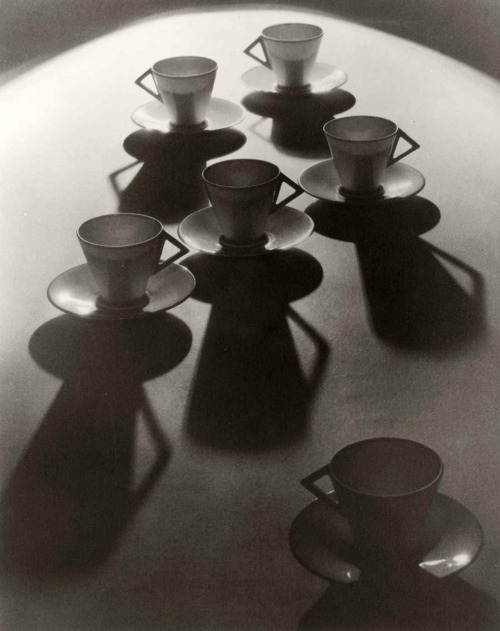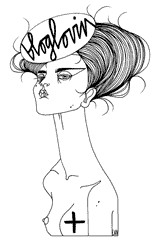
As women we feel obligated to achieve the 1950s stereotype of perfect womanhood; immaculate dress, neat hair; cooking, cleaning, doing absolutely everything, and with a smile. Women in the past had to be a monolith of effortless domestic strength and aptitude, but modern women shouldn’t feel inadequate by comparison, and should remember that most of those 1950s women didn’t have outside jobs. Their sole employment was to run their home and family, meaning that they had the time and energy to do it well.
I am constantly amazed by the amount of vigour my 76 year-old grandmother still finds to spend every day ironing socks, and tea towels, and underpants, when I don’t even iron proper clothes. As modern women, we have full-time jobs with very long hours, and the exhaustion of commuting, and far greater responsibilities and demands on our emotional and physical resources than in the past. It should be considered an achievement if we have the energy to come home from work and cook something that isn’t a ready-meal, let alone do it in heels.
My view of the domestic stereotype recently changed, and I realised that perhaps the past wasn’t as imbalanced as we think. My Grandmother was telling me that my Grandad would never be expected to cook a meal, or pick up a hoover, or change a nappy, because those were women’s jobs. However, as a woman, she would never be expected to take the bins out, or mow the lawn, or clean the gutters, or kill a spider. Men’s jobs. The partnership was more equal than we think, it was just that men and women had more clearly defined roles, with each doing what was expected of them, and keeping up their end of the partnership bargain to take care of the other, both part of the household clockwork.
Whilst there were indeed immense pressures placed on women to create a picture-perfect, and spotlessly clean home, and perfectly turned-out family, there were also equally great pressures on men when it came to meeting masculine roles and expectations, and being the sole provider for the family. This meant that women of the past weren’t challenged by many of the burdens that modern women face. The man earned the money, and paid the bills, and mowed the lawn, and looked after the car, and the woman looked after the home and family.
Modern women, now that we stay single/unmarried for longer, and tend to live by ourselves for longer, are burdened with both feminine and masculine responsibilities, and we have to do it all by ourselves. Even when we are in a partnership, the divide of responsibilities is more equally shared, and modern women are expected to change the tyres, and earn the money, as well as have a perfectly cooked meal on the table, and bath the children, and wear the heels and lipstick that make us attractive. We have to kill the spiders.
Is it any wonder that in 2019 women come home from work, and collapse on the sofa; wearing pyjamas, and eating pizza, rather than cooking a casserole in 5 inch heels, and taffeta? There just isn’t enough energy in one body to be both man and woman, and do everything all the time. As modern human beings, we’re just trying to get through the day. If we don’t get assaulted on the train home, that’s a victory, forget Victoria Sponge and Mac Ruby Woo on a Wednesday night. We’re doing our best. This goes for men, as well. Men are coming home from a long day’s work and dealing with bathtime, and bedtime stories, and sharing the cooking, instead of reading the newspaper in an armchair by the fire until dinner is on the table. The 21st Century has been hard on both sexes, and demanded more of all of us. Women know where the stopcock is, and men know who Mary Berry is.
The double-edged sword of equality, and feminism is that we have greater respect, higher wages, more freedom, more understanding, and a platform to speak that we didn’t have before, but we also have more responsibilities. We have to open our own doors. Fighting to be equal doesn’t just mean that your boss can’t call you sweetheart, it means that you unclog the drains instead of waiting for your husband. Perhaps we didn’t think this through?
As much as I am grateful for being an enlightened, modern woman; single, and earning my own money, not answerable to anybody, able to make my own decisions, I do sometimes wonder whether they had the right idea back then. Perhaps it would be quite nice to stay at home all day, putting lipstick on, and stirring a casserole, and then telling my husband when he comes home from work that the bins need seeing to, and the car needs filling up with petrol. Oh, and there’s a wasp’s nest in the garage with your name on it, I’m off to read Harry Potter to the children.
Of-course, equality is a wonderful, and very hard-won thing. You only have to look at countries who haven’t quite achieved it yet to appreciate how fortunate we are to be ‘woke’ in the UK. Women are completely free to be badasses in the home, and in the workplace. We can be boss, and mum, and still make a trifle with one hand, while paying the electricity bill online, and breastfeeding a child. Women have infinite resources, and therefore infinite value. It is simplistic to think that those women of years gone by were wasted, and unchallenged. Running a home, and looking after a family so totally, and devotedly, takes enormous energy, strength, and mental acuity. The housekeeping standards that were held are something we can only aspire to, and learn from. I wish I had the time and energy to iron my socks, and hoover right into the corners, but I just don’t… but those women did.
However, we must think of all the women over the years who would have been lawyers, and doctors, and engineers, and pilots, and members of parliament. Many women missed their chance to change the world because they were only allowed to give birth, and change nappies, and make drinks for their husband’s colleagues. All that wasted talent, and potential. That is the true importance of equality; what could have been, and what might be.
We would be living in a very different world if those women had been given the chance to do something else, something more. Laws would be different, economies would be different. I often think that our history as mankind until very recently has been governed by men, and those men made decisions in a very different way to women, based on violence. History was decided with wars, and bombs, and guns, and tanks, and murder, and fighting, and terror, and executions. Violence and death have dominated our progress as human beings. Women would have done things very differently. Women would not commit mass genocide. Women would not invent mustard gas for the trenches. Women would not build Auschwitz. Women would not make men fight lions in arenas for entertainment. Women would not nail Jesus to a cross, and watch him bleed. I believe this is because women create life, and feel it growing inside them. They feed life at their breast. They also know how precarious and vulnerable life is. They feel it disappear. They see it slip away, carried from their sight in a dirty bundle. Women know the true value of life, and so would not be so careless with it. When you have waited for life every month, and every month felt the crushing blow of its absence with the stark reminder of blood, you would not invent the Kalashnikov/AK-47. When you have loved a tiny life for nine months, and felt its every movement deep within your body, and planned every moment of its future, and then watched it being pulled away from you; cold and lifeless, you would not invent the electric chair to punish murderers. You would not walk into a music arena in Manchester and explode nails at children dancing to their favourite song. The world would be very different if it were governed by the people who understand how incredibly valuable a life is.
How different the world would be if every nation were governed, and protected by a mother, who would nurture every life at her breast, and feel every loss as her own.
This Woman’s Work, Kate Bush.
Pray God you can cope
I stand outside this woman’s work
This woman’s world
Ooh, it’s hard on the man
Now his part is over
Now starts the craft of the father
I know you’ve got a little life in you yet
I know you’ve got a lot of strength left
I know you’ve got a little life in you yet
I know you’ve got a lot of strength left
I should be crying, but I just can’t let it show
I should be hoping, but I can’t stop thinking
Of all the things I should’ve said
That I never said
All the things we should’ve done
Though we never did
All the things I should’ve given
But I didn’t
Oh, darling, make it go
Make it go away
Give me these moments back
Give them back to me
Give me that little kiss
Give me your hand
I should be crying, but I just can’t let it show
I should be hoping, but I can’t stop thinking
Of all the things
we should’ve said
That we never said
All the things we should’ve done
Though we never did
All the things that you needed from me
All the things that you wanted for me
All the things that I should’ve given
But I didn’t
Oh, darling, make it go away
Just make it go away now






























Recent Comments